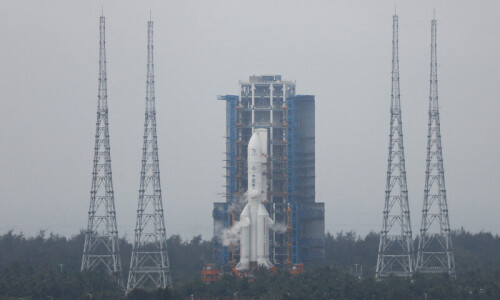
NEW DELHI: India has suggested that countries refusing to match nuclear reactor sales with technology transfers could be frozen out of one of the world's largest reactor markets.
The veiled threat came in a television interview broadcast Sunday, in which Foreign Secretary Nirupama Rao was asked about new Nuclear Suppliers Group (NSG) guidelines on sensitive uranium enrichment and reprocessing technology.
The guidelines restrict the sale of such technology to countries which, like nuclear-armed India, have not signed up to the Nuclear Non-Proliferation Treaty.
India sees the move as a challenge to the waiver from NSG rules — negotiated by the United States — that the country was granted in 2008.
Companies from France, Russia, the United States and Japan are competing for a slice of the $175 billion India plans to spend on nuclear reactors, and Rao hinted that a willingness to provide technology transfers would be a factor in awarding contracts.
“There are leverages that we can exert from our side,” Rao said. “We have an expanding nuclear industry. This is a great attraction to the rest of the world.”
Asked if that meant India would ban reactor purchases from countries that follow the new transfer guidelines, Rao said: “We will defend our interests to the hilt.”
India's fast-growing economy is heavily dependent on coal. Less than three per cent of the country's electricity comes from nuclear power, but it hopes to raise the figure to 25 percent by 2050.
The 2008 exemption from NSG rules ended three decades of nuclear isolation imposed on India following its 1974 nuclear tests.
Rao stressed that the United States, France and Russia had provided reassurances that they would continue to support the waiver.
“The international nuclear order will change in India's favour. I am sure of that,” Rao said, adding that the new NSG restrictions were not “set in stone.”
The foreign secretary also touched on recent talks with her Pakistani counterpart, as the South Asia rivals seek to mend ties broken after the 2008 Mumbai attacks blamed on Pakistan-based militants.
Despite what India sees as Islamabad's lack of progress in bringing those behind the attacks to justice, Rao said the Pakistani side had shown a greater willingness to discuss India's concerns over terrorism.
“I think the prism through which they see this issue has definitely been altered.”
Relations between India and Pakistan, which have fought three wars since the subcontinent was partitioned in 1947, have been plagued by border and resource disputes, and accusations of Pakistani militant activity against India.












































Dear visitor, the comments section is undergoing an overhaul and will return soon.